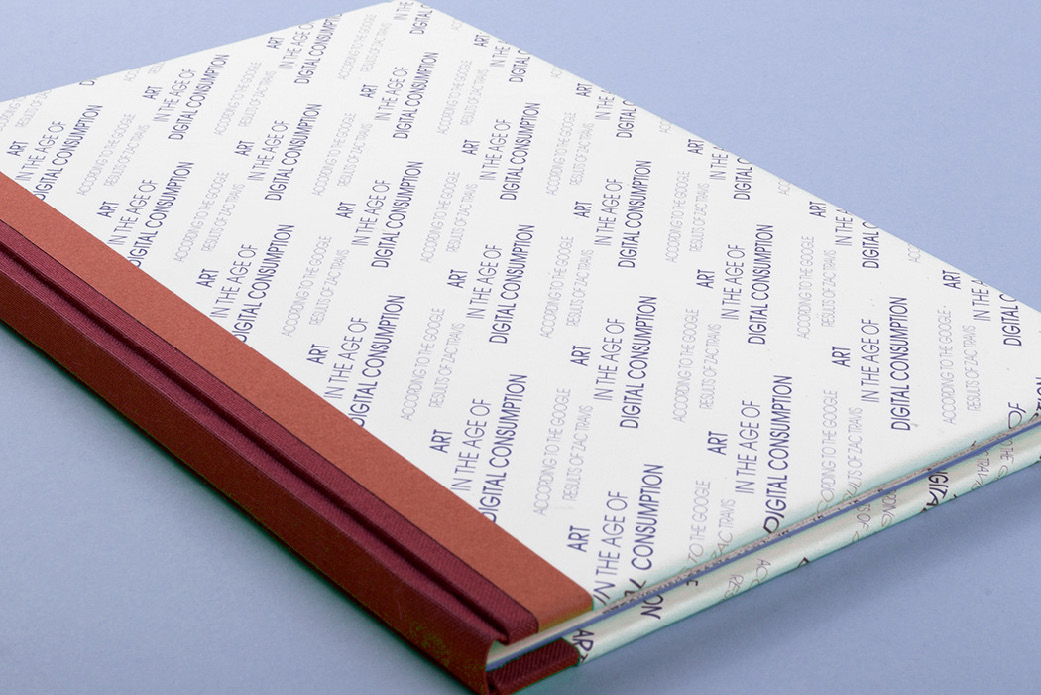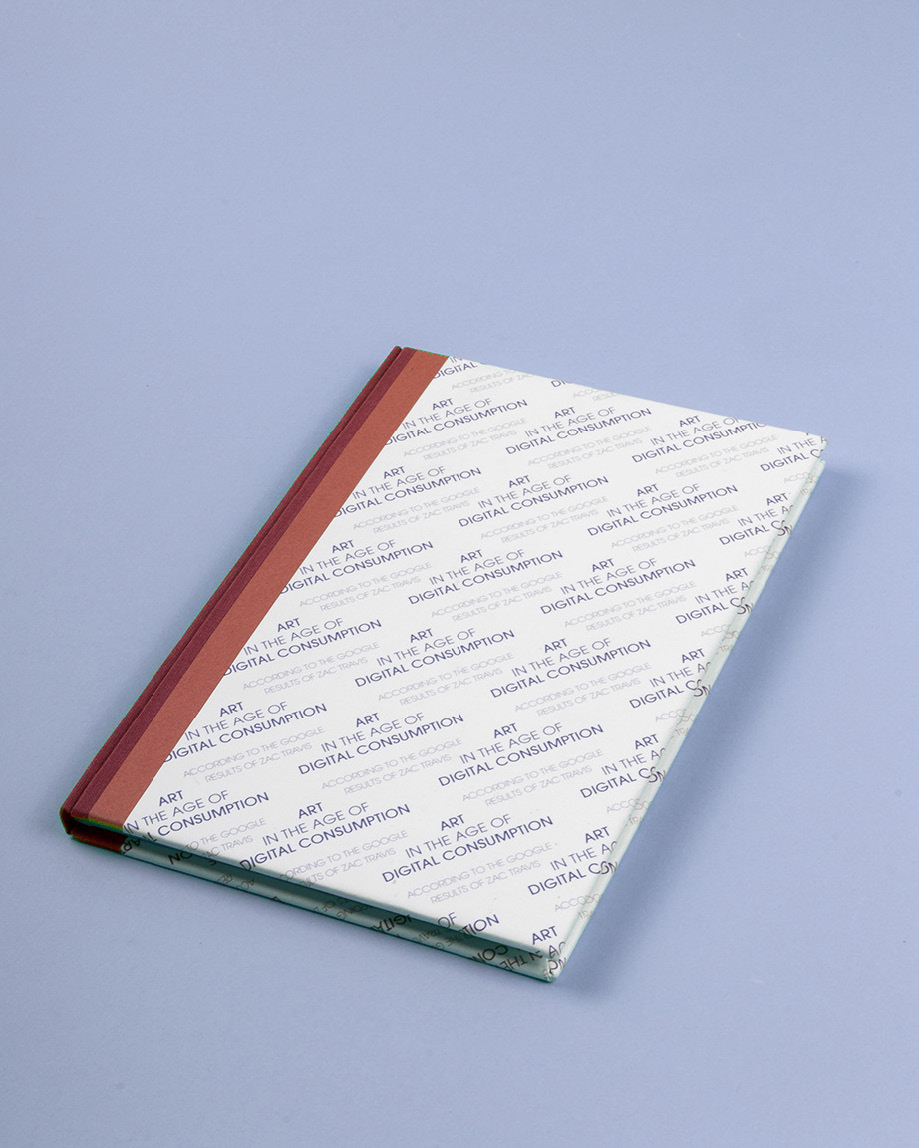

2014
hand bound book edition 1 of 1
This project draws inspiration from Walter Benjamin’s seminal essay, The Work of Art in the Age of Mechanical Reproduction, to question the nature of art and authenticity in the digital era. Through the form of a book, the work examines how digital algorithms personalize and filter our access to information, affecting our understanding and experience of culture. Commonly known as a “filter bubble,” this phenomenon shapes individual perspectives by tailoring online content based on user behavior, isolating people within personalized digital realities.
The book documents a collection of URL links from Travis’ personalized Google search results for Benjamin’s essay title, captured between 2013 and 2014. These search results reveal how a search engine’s algorithm defines and curates cultural discourse, highlighting the contrasts between Benjamin’s era of reproducibility and our own, in which algorithms and personalization tools mediate access to knowledge. By cataloging these unique, time-bound results, the project calls attention to the effects of digital mediation on the way we encounter and interpret influential ideas, ultimately inviting reflection on the evolving nature of art, information, and authenticity in the age of the algorithm.
hand bound book edition 1 of 1
This project draws inspiration from Walter Benjamin’s seminal essay, The Work of Art in the Age of Mechanical Reproduction, to question the nature of art and authenticity in the digital era. Through the form of a book, the work examines how digital algorithms personalize and filter our access to information, affecting our understanding and experience of culture. Commonly known as a “filter bubble,” this phenomenon shapes individual perspectives by tailoring online content based on user behavior, isolating people within personalized digital realities.
The book documents a collection of URL links from Travis’ personalized Google search results for Benjamin’s essay title, captured between 2013 and 2014. These search results reveal how a search engine’s algorithm defines and curates cultural discourse, highlighting the contrasts between Benjamin’s era of reproducibility and our own, in which algorithms and personalization tools mediate access to knowledge. By cataloging these unique, time-bound results, the project calls attention to the effects of digital mediation on the way we encounter and interpret influential ideas, ultimately inviting reflection on the evolving nature of art, information, and authenticity in the age of the algorithm.